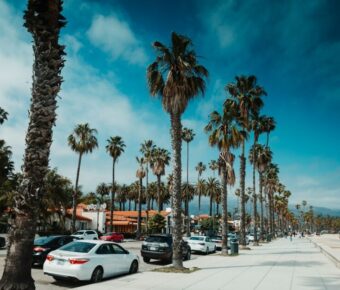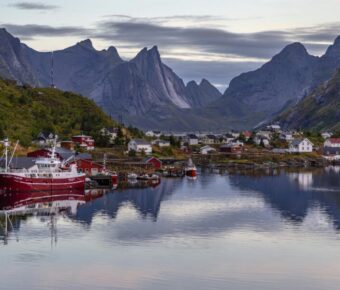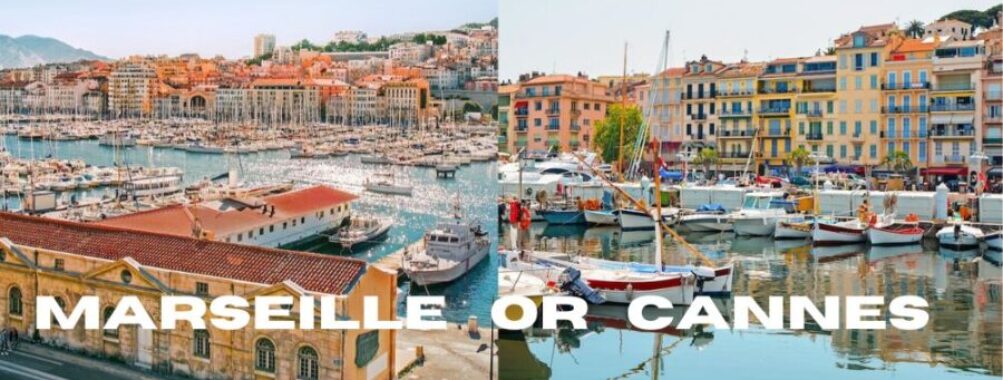
Marseille vs Cannes: 5 Key Differences Between These Stunning French Riviera Cities
Deciding between Marseille and Cannes is like choosing between two different sides of French coastal life. Marseille stands as France’s oldest city, with 2,600 years of history packed into its bustling streets and ancient port. Cannes sparkles with glamour, famous for its film festival and sandy beaches that draw celebrities and sun-seekers alike.
For travelers seeking history and authentic French culture, Marseille offers a richer experience with its vibrant food markets and historic sites, while Cannes excels at luxury experiences and beach activities. The choice comes down to the type of vacation experience you want – Marseille’s raw, urban energy or Cannes’ polished, resort-town charm.
These two French Riviera gems each paint a unique picture of life in the south of France. Marseille brings the real working port city experience of Provence, complete with fresh seafood and colorful neighborhoods. Cannes delivers that picture-perfect Mediterranean holiday with its palm-lined beaches and upscale shopping.
Contents
- Discovering the Charm of Marseille and Cannes
- Historical Significance and Heritage
- The Enduring Legacy of Marseille
- Cannes’ Glamorous Evolution
- Architectural Wonders
- Exploring the Cultural Landscape
- Art and Museums
- The Fame of Film Festivals
- Street Art Scenes
- Gastronomic Delights in Marseille and Cannes
- Local Flavors of Marseille
- Cannes’ Culinary Scene
- Wine and Dine Experiences
- Leisure and Recreation by the Sea
- Sun-kissed Beaches
- Nightlife and Entertainment
- Waterfront Activities
- Shopping and Lifestyle
- Chic Boutiques and Markets
- Artisanal Crafts and Souvenirs
- Accommodation Choices for Every Traveler
- Cozy Hostels and Budget Hotels
- Midrange Comforts
- Luxury and High-end Resorts
- Seasonal Events and Best Time to Visit
- Summer Festivities
- Winter Attractions
- Off-season Travel Benefits
- Practical Information for Visitors
- Navigating Public Transportation
- Safety and Emergency Services
- Accommodating Diverse Travel Needs
- Frequently Asked Questions
- What unique attractions does Marseille offer that Cannes does not?
- Can you compare the cultural experiences between Marseille and Cannes?
- How do the beaches of Marseille and Cannes differ?
- In terms of culinary experiences, how do Marseille and Cannes contrast?
- What are the travel costs when comparing Marseille to Cannes?
- Could you highlight the differences in the nightlife between Marseille and Cannes?
- More Travel Guides
Discovering the Charm of Marseille and Cannes
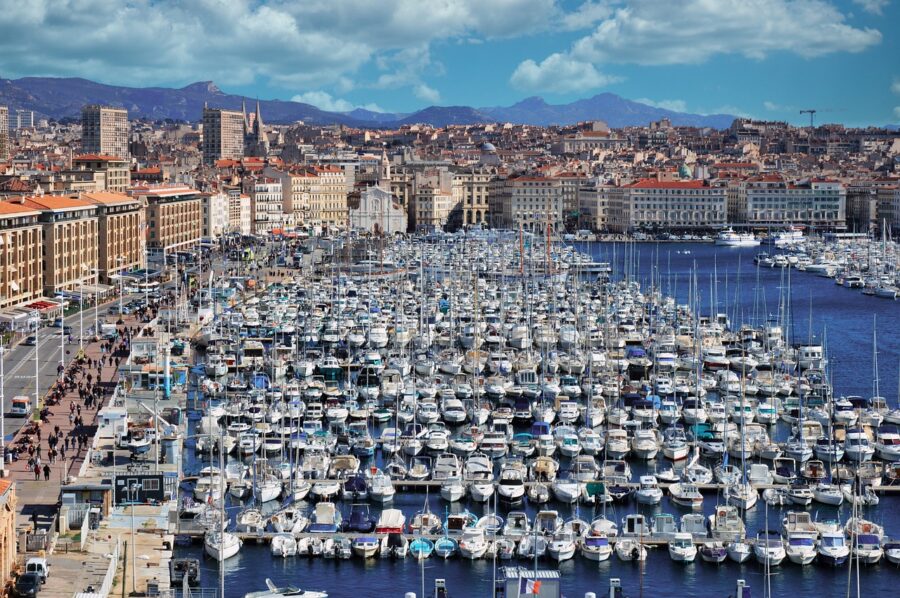
Marseille and Cannes represent two distinct faces of the French Mediterranean coast. While Marseille stands as France’s oldest city with its rich Greek heritage, Cannes sparkles as the crown jewel of the Côte d’Azur.
The Old Port of Marseille buzzes with activity from sunrise to sunset. Local fishermen sell their fresh catch each morning, while cafes and restaurants line the waterfront, serving the city’s famous bouillabaisse fish stew.
Cannes dazzles visitors with its glamorous atmosphere and pristine beaches. The famous Promenade de la Croisette stretches along the coastline, lined with luxury hotels, designer boutiques, and palm trees.
Notable Highlights:
- Marseille: Notre-Dame de la Garde basilica, Le Panier district, Calanques
- Cannes: Film Festival Palace, Île Sainte-Marguerite, Rue d’Antibes
Both cities offer unique dining experiences. Marseille’s multicultural food scene reflects its port city heritage, while Cannes serves up refined French cuisine in elegant settings.
Street life varies dramatically between the two. Marseille’s streets pulse with energy and authenticity, filled with local markets and street art. Cannes maintains a more polished atmosphere with its manicured gardens and upscale shops.
Visit Marseille for its raw beauty and cultural mix. Choose Cannes for its refined elegance and coastal charm. Each city tells its own story of the Mediterranean, whether through Marseille’s ancient streets or Cannes’ modern luxury.
Historical Significance and Heritage
Both cities carry deep historical roots that shape their modern identity, though their paths through time differ dramatically. Marseille stands as France’s oldest city, while Cannes transformed from a modest fishing village into a symbol of luxury.
The Enduring Legacy of Marseille
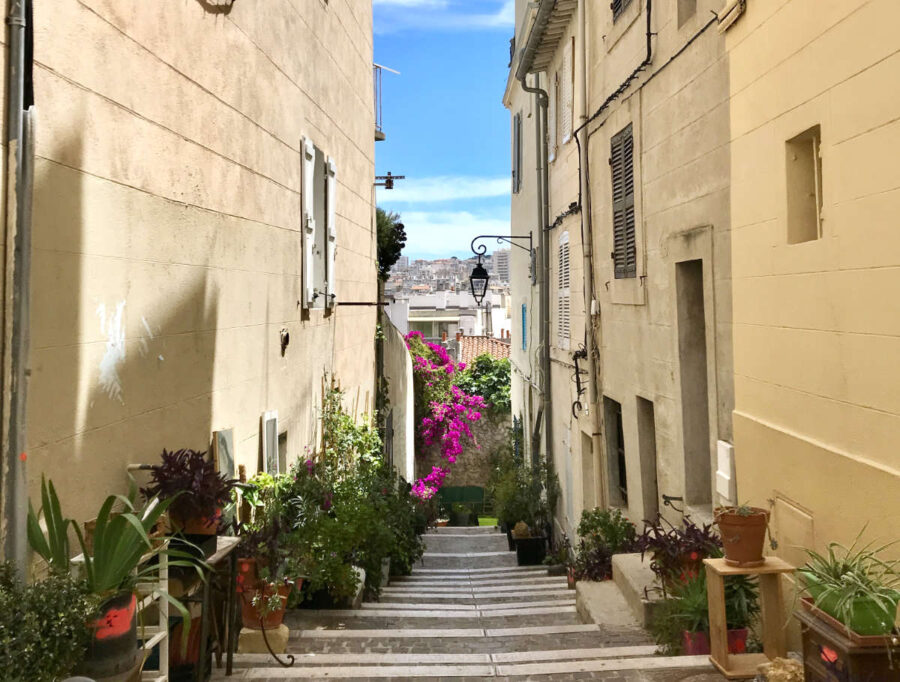
Founded in 600 BC by Greek settlers from Phocaea, Marseille holds the title of France’s oldest city. The ancient port has been a crucial Mediterranean trading hub for over 2,600 years. Its rich Greek and Roman heritage lives on in the old port area.
The city’s historic Panier district features narrow winding streets and ancient buildings that tell stories of centuries past. Many original structures survived despite numerous conflicts and changes throughout history.
The Vieux-Port (Old Port) remains the heart of Marseille’s identity. Ancient fishermen’s traditions continue here, with daily fish markets and boat rides still connecting visitors to the city’s maritime roots.
Cannes’ Glamorous Evolution
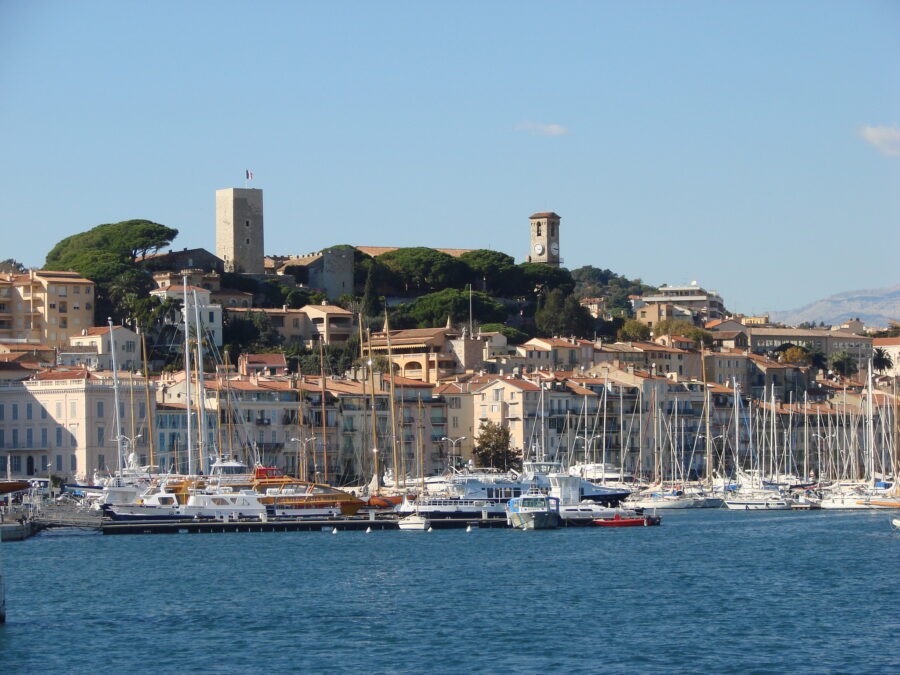
Cannes began as a quiet fishing village named Le Suquet. The medieval hilltop neighborhood still stands as the city’s historic heart, crowned by an 11th-century tower.
The city’s transformation started in the 1830s when British aristocrats discovered its scenic beauty. They built elegant villas and spread word of this Mediterranean gem.
The Film Festival’s launch in 1946 marked Cannes’ final evolution into a luxury destination. Historic hotels like the Carlton and Martinez became symbols of the city’s new identity.
Architectural Wonders
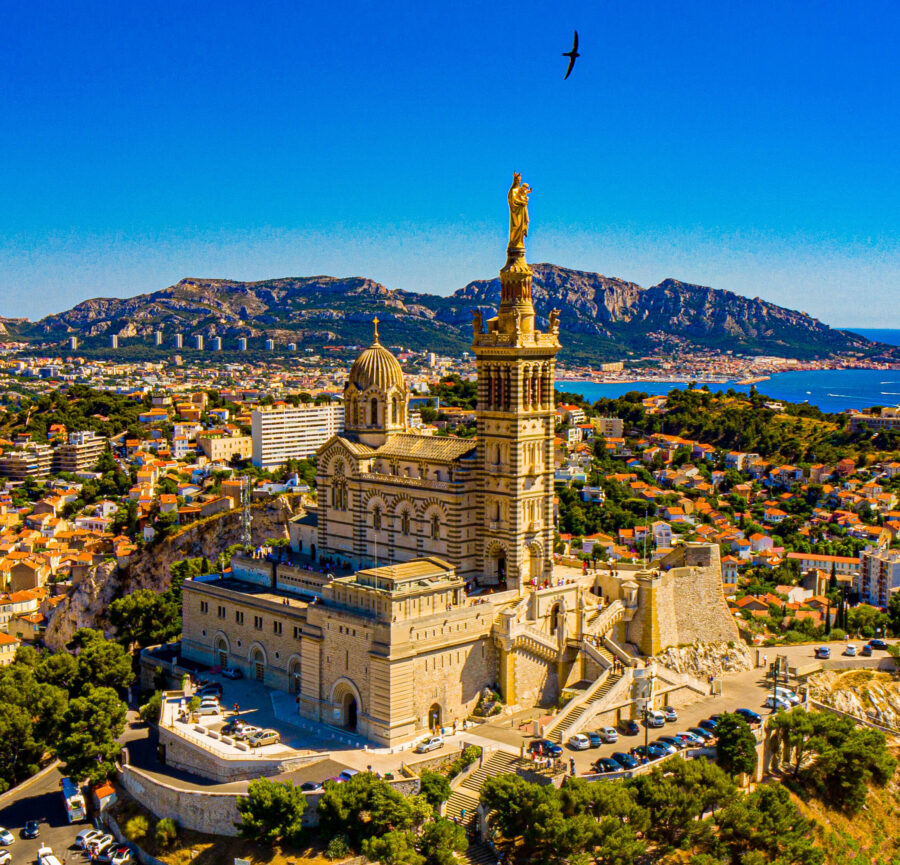
Marseille’s Notre-Dame de la Garde basilica watches over the city from its highest point. This 19th-century Romano-Byzantine church showcases the city’s religious heritage.
The Le Suquet district in Cannes features medieval stone walls and the Musée de la Castre, housed in an 11th-century castle. Its watchtower provides stunning views of the bay.
Marseille’s modern architectural gems include the MuCEM museum, which connects to the historic Fort Saint-Jean via a dramatic footbridge. This blend of old and new represents both cities’ ability to preserve their past while embracing the future.
Exploring the Cultural Landscape
Marseille and Cannes offer distinct cultural experiences shaped by art, film, and creative expression. Each city brings its own unique flavor to the French cultural scene.
Art and Museums
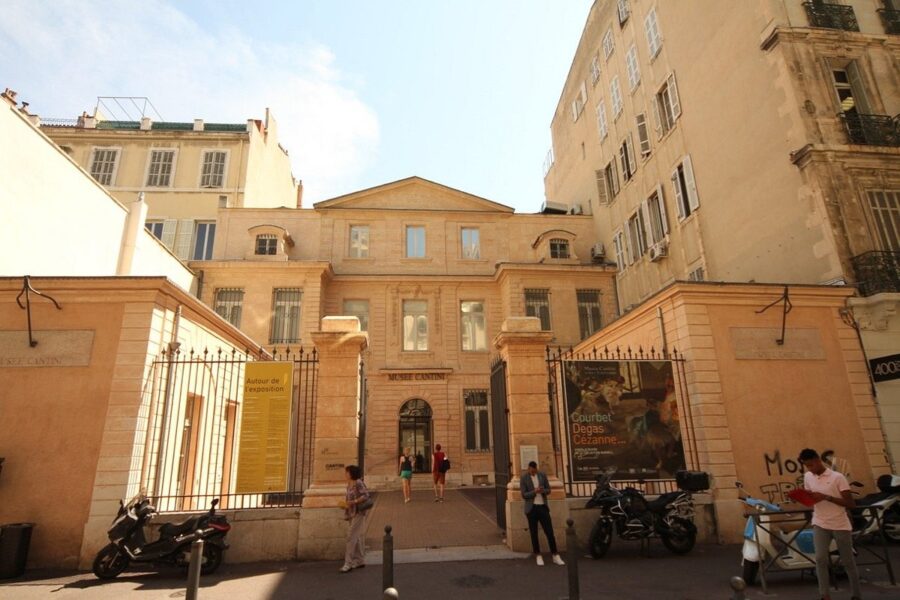
Marseille’s art scene centers around the Museum of European and Mediterranean Civilisations (MuCEM). This stunning waterfront museum showcases Mediterranean culture through artifacts, art, and photography. The Cantini Museum displays an impressive collection of modern art from the 20th century.
Cannes keeps its artistic focus smaller but refined. The Malmaison Art Center, housed in a former casino on La Croisette, hosts rotating exhibitions of contemporary art. The Musée de la Castre, set in a medieval castle, features primitive art and musical instruments from around the world.
The Fame of Film Festivals
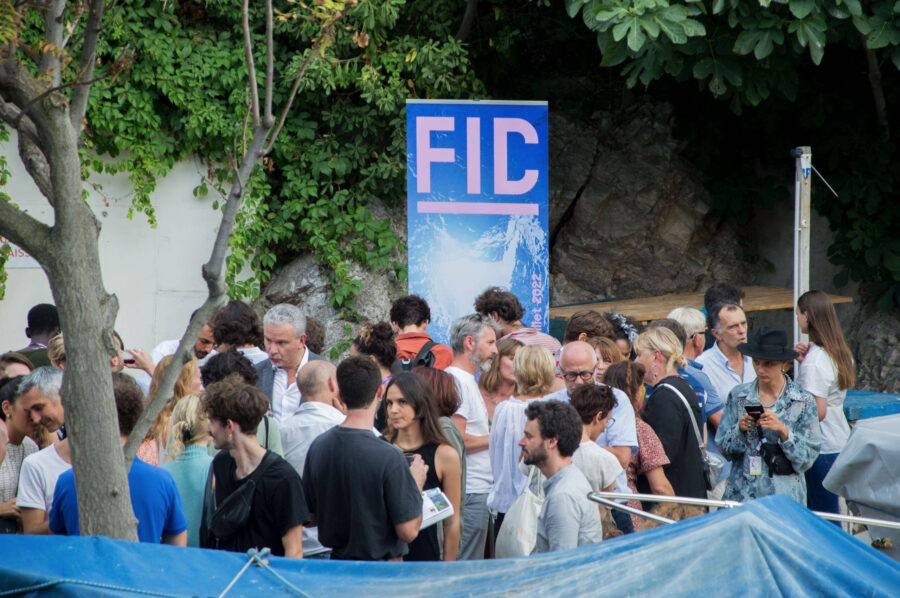
The Cannes Film Festival stands as one of the most prestigious film events worldwide. Every May, the city transforms as stars walk the red carpet at the book festival tickets and events. The festival has launched countless careers and films since 1946.
Marseille hosts several smaller film festivals throughout the year. The FIDMarseille focuses on documentary films, while the Festival of Mediterranean Film celebrates regional cinema.
Street Art Scenes
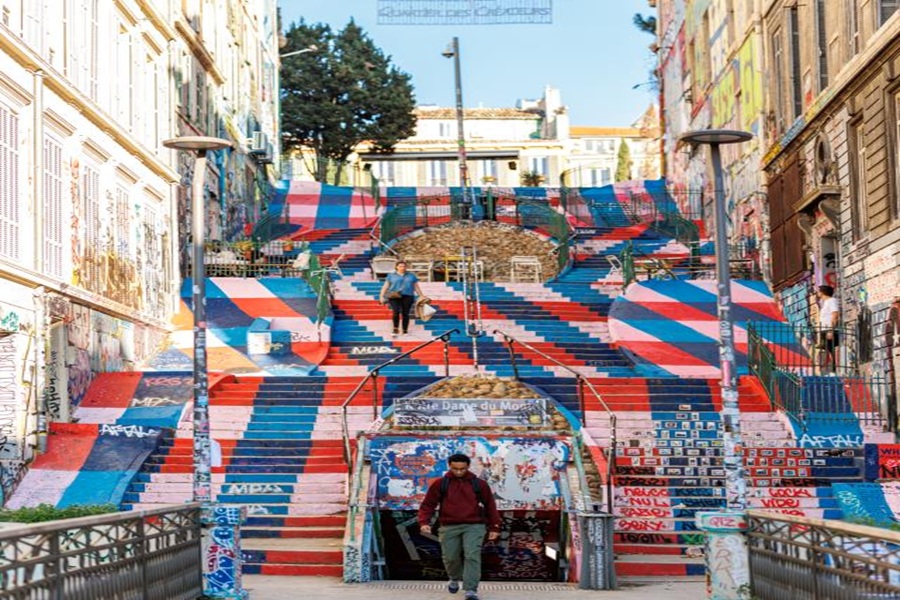
Marseille embraces street art with colorful murals decorating Le Panier neighborhood. Local artists transform blank walls into vibrant stories about the city’s maritime heritage and diverse population.
The street art movement grows steadily in the Le Cours Julien district. This artistic quarter features bold graffiti pieces and murals on nearly every corner.
Cannes takes a more controlled approach to street art. The city commissions select artists to create movie-themed murals, paying tribute to cinema icons and famous films that premiered at the festival.
Gastronomic Delights in Marseille and Cannes
Both cities offer unique culinary experiences that showcase the best of French Mediterranean cuisine, from fresh seafood to local specialties shaped by centuries of tradition.
Local Flavors of Marseille

Marseille’s food scene centers around its famous bouillabaisse, a rich seafood stew made with at least three types of fish, shellfish, and aromatic herbs. The dish started as a humble fishermen’s meal but has evolved into a local delicacy served in restaurants across the city.
The Vieux-Port hosts countless seafood restaurants where chefs prepare the catch of the day. Fresh sea urchins, mussels, and red mullet are local favorites.
Le Panier district features small family-run bistros serving pieds et paquets (sheep’s feet and tripe) and pastis, the anise-flavored spirit beloved by locals.
Cannes’ Culinary Scene

Cannes blends traditional Provençal cooking with modern fine dining. Michelin-starred restaurants line La Croisette, offering creative interpretations of Mediterranean classics.
The Forville Market brings together local producers selling olives, cheese, fresh herbs, and seasonal vegetables. Many restaurants source their ingredients here daily.
Street food in Cannes has its own charm. Small vendors sell socca, a crispy chickpea pancake, and pissaladière, an onion tart topped with olives and anchovies.
Wine and Dine Experiences

Both cities celebrate the wines of Provence. Local rosés pair perfectly with seafood dishes and warm summer evenings.
Marseille’s wine bars specialize in bottles from nearby Cassis and Bandol regions. Many offer wine-tasting sessions with expert sommeliers.
Cannes features elegant rooftop bars where guests can sample rare vintages while enjoying sea views. Private wine cellars host exclusive tastings of regional wines.
Suggested wine pairings:
- Bouillabaisse: Cassis white wine
- Seafood platters: Provence rosé
- Local cheese: Bandol red wine
Leisure and Recreation by the Sea
The Mediterranean coastline shapes the leisure scene in both Marseille and Cannes, offering distinct seaside experiences. The cities provide endless ways to soak up the sun and enjoy coastal activities.
Sun-kissed Beaches
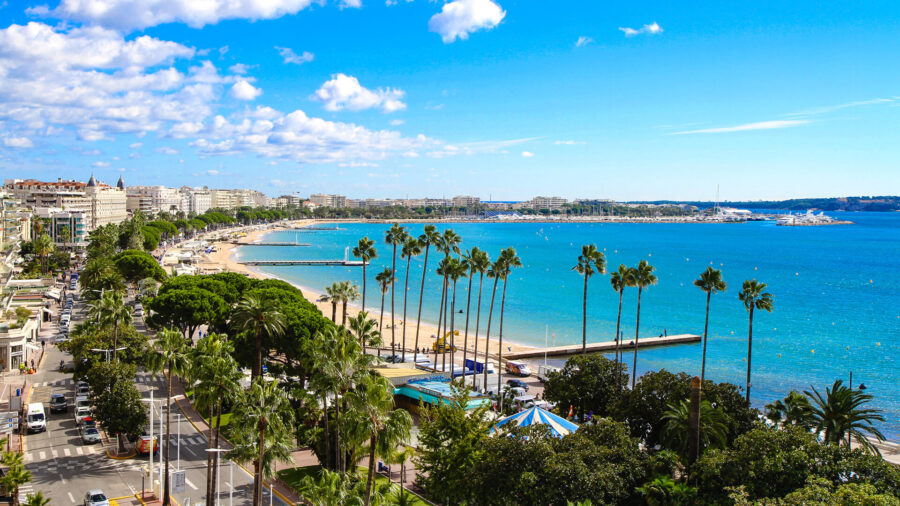
Cannes boasts pristine sandy beaches along La Croisette boulevard. The private beaches offer luxury loungers and top-notch service, while public beaches provide free access to the sparkling Mediterranean waters.
Marseille’s beaches range from urban spots like Plage des Catalans to hidden coves in the Calanques. The Prado beaches stretch for kilometers, perfect for swimming and water sports.
Each city’s beaches have their own character. Cannes draws the glamorous crowd with its manicured shoreline. Marseille’s beaches feel more local and relaxed, with families and friends gathering for picnics and pétanque games.
Nightlife and Entertainment
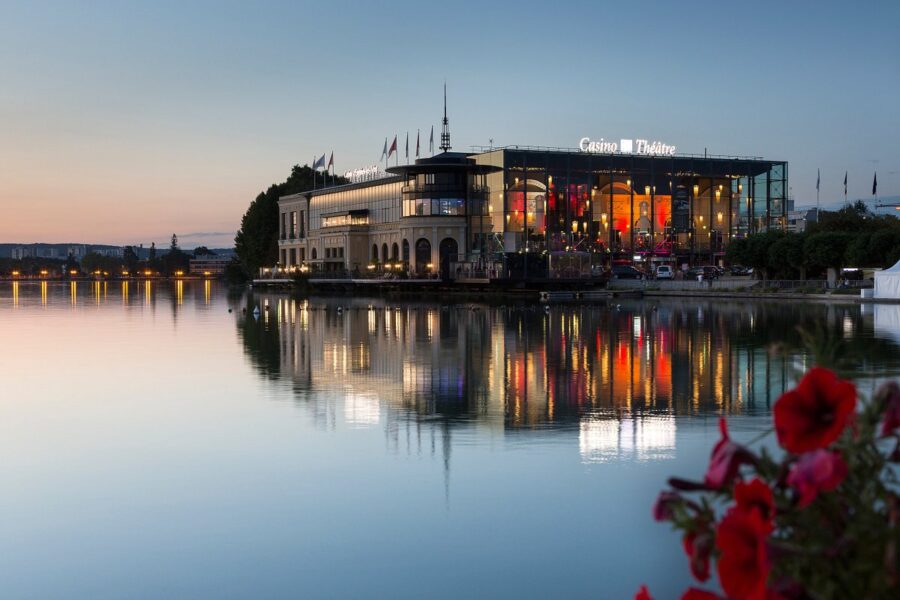
Cannes lights up after dark with exclusive beach clubs and upscale bars. The Casino Barrière hosts high-stakes games and shows. During festival season, the city buzzes with red-carpet events and celebrity parties.
Marseille’s nightlife centers around the Vieux-Port area. Local bars and music venues fill the narrow streets. Street performers entertain crowds along the harbor front.
Live music ranges from jazz clubs to Mediterranean folk bands. Both cities offer open-air concerts during summer months.
Waterfront Activities

The Cannes Yachting Festival showcases luxury boats each September. Visitors can rent sailboats or take sunset cruises year-round. Water sports include jet skiing, parasailing, and paddleboarding.
Marseille’s Old Port bustles with boat tours to the Calanques and Château d’If. Local fishermen sell fresh catches at the morning market.
Kayaking trips explore hidden caves and coves. Scuba diving reveals underwater Roman ruins and rich marine life. Ferry rides connect to nearby islands, making perfect day trips.
Shopping and Lifestyle
Marseille and Cannes offer very different shopping scenes. Marseille brings authentic local markets and artisanal crafts, while Cannes sparkles with luxury boutiques and high-end fashion.
Chic Boutiques and Markets
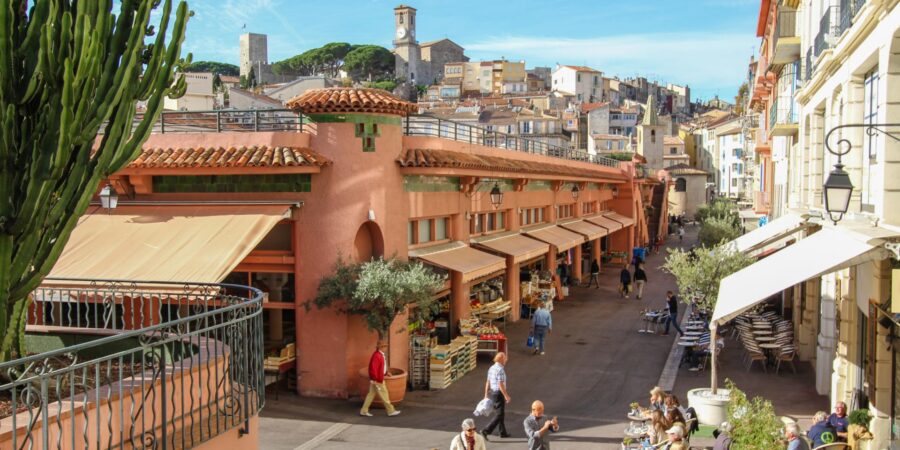
Cannes shines with designer stores along La Croisette and Rue d’Antibes. You’ll spot names like Chanel, Louis Vuitton, and Dior drawing wealthy shoppers from around the world.
The Marché Forville in Cannes opens daily except Mondays, selling fresh produce, flowers, and local delicacies. The vendors create beautiful displays of seasonal fruits, vegetables, and Provençal specialties.
Marseille’s Le Panier district houses small fashion shops and indie designers. The prices stay more reasonable than Cannes, making it perfect for finding unique pieces without breaking the bank.
Artisanal Crafts and Souvenirs
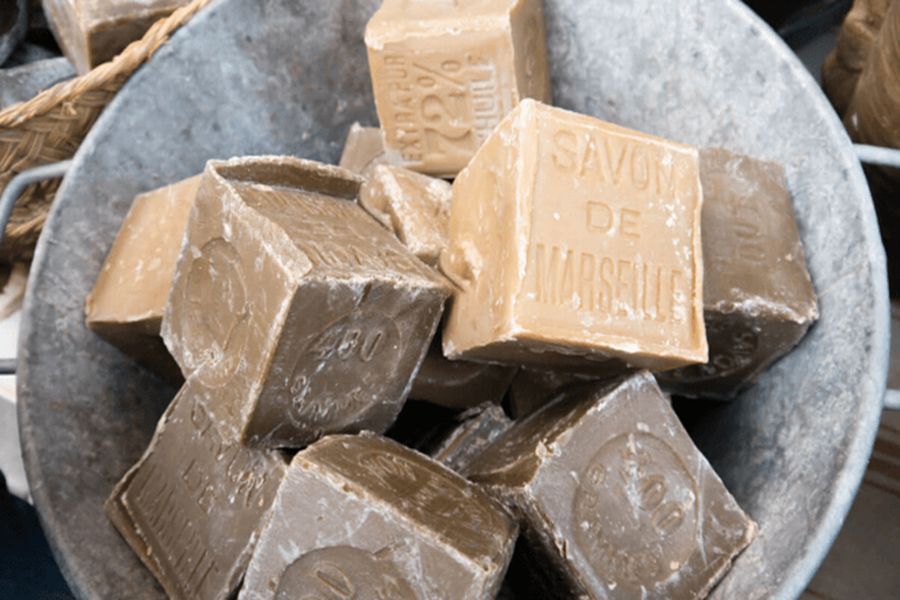
Marseille’s artisans craft traditional Savon de Marseille soap in huge blocks. Local workshops still use centuries-old methods to make these olive oil-based soaps.
The city’s famous santons (hand-painted clay figurines) make perfect souvenirs. Artists sell these tiny masterpieces in specialized shops throughout the old town.
Cannes focuses more on luxury items and fashion accessories. Local boutiques offer handmade jewelry, designer sunglasses, and custom leather goods.
The Forville area features small shops selling Provençal textiles, locally-made perfumes, and gourmet food items like olive oil and herbs.
Accommodation Choices for Every Traveler
Both Marseille and Cannes offer places to stay for every budget, from casual backpacker spots to five-star hotels with stunning sea views. Each city has its own distinct mix of options spread across different neighborhoods and price points.
Cozy Hostels and Budget Hotels
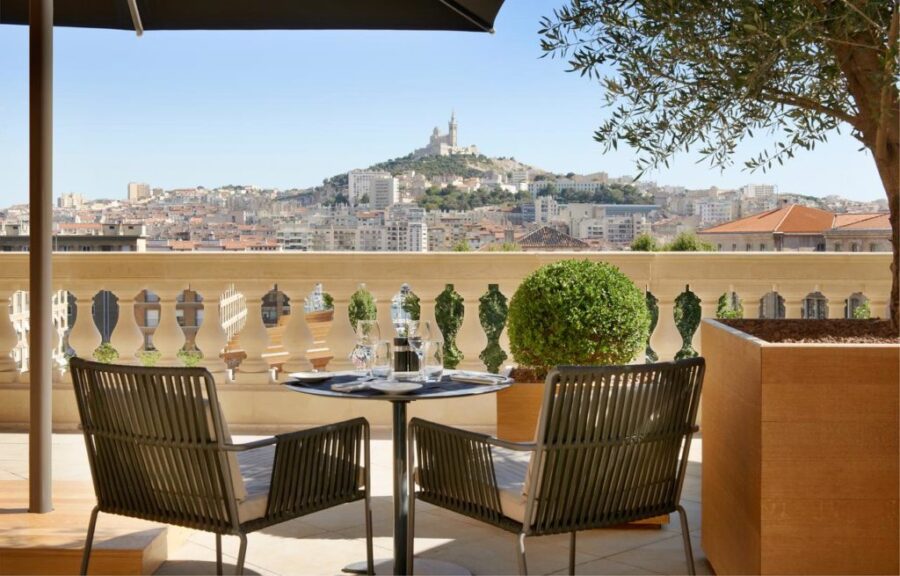
Marseille shines for budget travelers with many affordable options near the Vieux-Port. Most hostels charge €20-35 per night for a dorm bed. Small family-run hotels start around €60-80 per night.
Cannes has fewer budget choices, with most basic hotels starting at €80-100 per night. The few hostels available fill up fast during peak season and festivals.
The best deals in both cities are found in the off-season from October to March. To get the best rates, book accommodation early.
Midrange Comforts

Three and four-star hotels in Marseille cluster around the port and Prado beaches. A standard double room costs €120-200 per night with amenities like air conditioning and sea views.
Cannes offers plenty of boutique hotels and apartment rentals in the €150-250 range. Many sit just a few blocks from La Croisette boulevard and provide easy beach access.
Both cities feature charming bed & breakfasts in historic buildings. These often include homemade breakfast and local hospitality.
Luxury and High-end Resorts
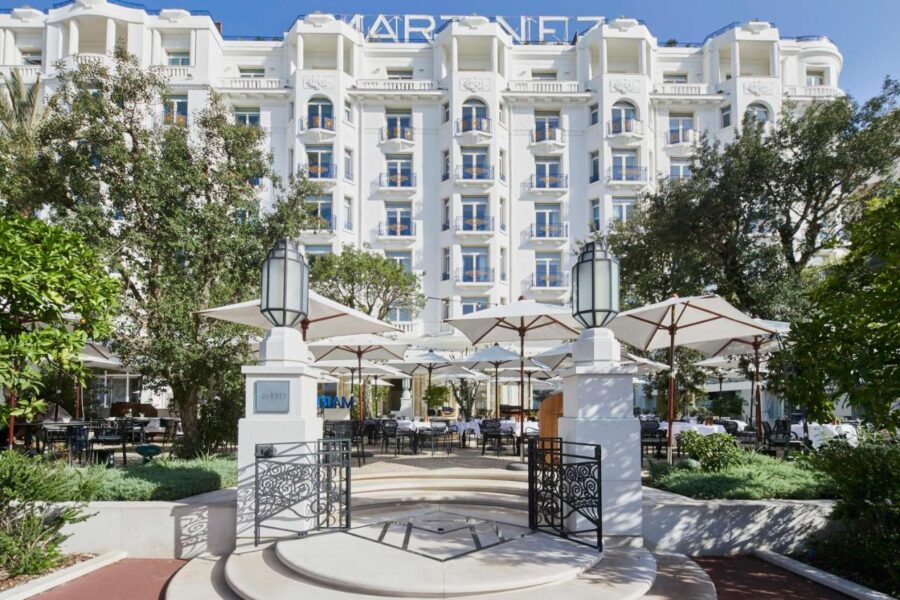
Cannes leads in luxury stays, with legendary hotels like the Carlton and Martinez along La Croisette. Rooms start at €300-1000+ per night with premium suites reaching €5000 during film festival season.
Marseille’s top hotels occupy prime spots near the port and Corniche waterfront. Five-star properties offer rates from €250-600 per night with rooftop pools and gourmet restaurants.
The InterContinental and Sofitel chains maintain properties in both cities. Most luxury hotels provide access to private beaches and concierge services.
Seasonal Events and Best Time to Visit
Both Marseille and Cannes shine year-round with distinct seasonal charm and vibrant events that bring these Mediterranean gems to life. Each season offers unique experiences, from star-studded film festivals to traditional Christmas markets.
Summer Festivities

The Cannes Film Festival in May transforms the city into a global cinema hub. A-list celebrities walk the red carpet while film screenings and parties light up the Croisette.
The Festival de Marseille in June and July celebrates dance, music, and theater across various venues. Street performances fill the Old Port with energy.
Bastille Day celebrations on July 14 are spectacular in both cities. Marseille’s fireworks over the Vieux-Port create magical reflections on the water. Cannes hosts an impressive pyrotechnic festival throughout summer.
Winter Attractions
The Christmas markets in both cities sparkle from late November through December. Marseille’s Foire aux Santons showcases traditional Provençal nativity figures.
Winter temperatures stay mild, usually between 12-15°C (54-59°F). Perfect for exploring museums and historical sites without summer crowds.
Cannes’ Shopping Festival in January offers great deals at luxury boutiques. The city’s famous hotels host cozy tea times with Mediterranean views.
Off-season Travel Benefits
Spring (April-June) and fall (September-October) bring pleasant temperatures around 20°C (68°F). These months offer the best mix of good weather and smaller crowds.
Hotel prices drop significantly outside summer months. You’ll find better deals on accommodations and easier reservations at popular restaurants.
The Mediterranean waters stay warm enough for swimming well into October. You can enjoy beach activities without fighting for space on the sand.
Local markets and shops operate at a more relaxed pace during off-season months. This makes it easier to chat with vendors and experience authentic local culture.
Practical Information for Visitors
Getting around both cities requires some planning, but both offer reliable transportation and safety services. Local facilities cater to different travel styles and budgets.
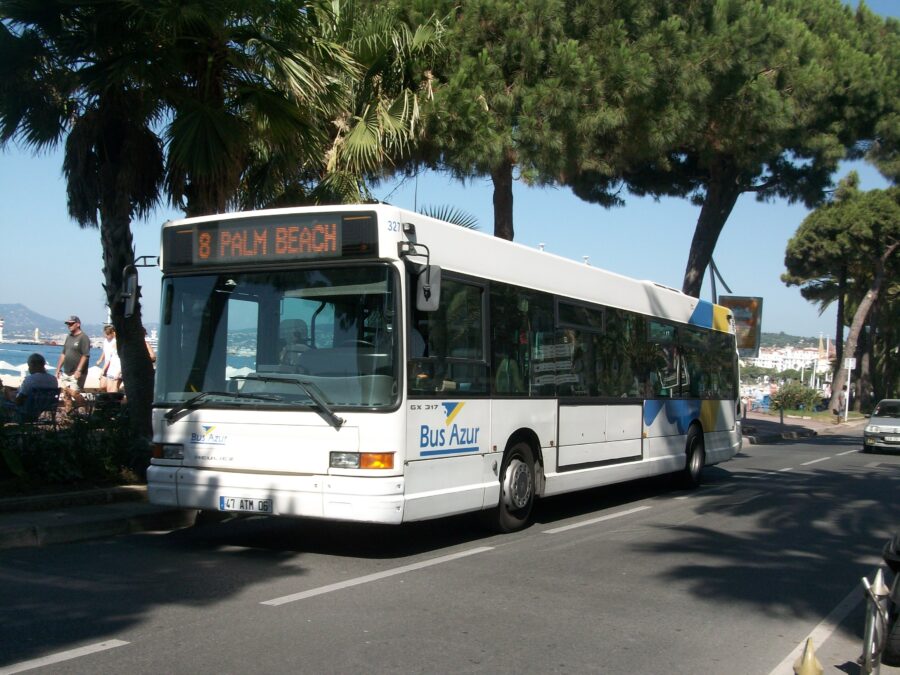
Both cities run efficient bus and train networks. Marseille’s metro system includes 2 lines covering major attractions and neighborhoods. The city’s tram network adds 3 more routes.
Cannes relies more on buses. The Palm Bus network connects all main areas. Bus #200 links Cannes to Nice and nearby towns for day trips.
Buy multi-day passes to save money in either city. A 3-day pass costs about €10 in Marseille and €12 in Cannes.
Transport runs from 5am until midnight in both places. Night buses operate on weekends.
Safety and Emergency Services
Dial 112 for any emergency in both cities. Police stations operate 24/7 in central areas.
Tourist police speak multiple languages during peak season. They patrol popular areas like Cannes’ La Croisette and Marseille’s Vieux-Port.
Keep valuables secure, especially in crowded spots. Both cities are generally safe but stay alert in busy areas.
Most hospitals accept major travel insurance. Medical centers near tourist zones often have English-speaking staff.
Accommodating Diverse Travel Needs
Families find plenty of child-friendly hotels and rentals. Many restaurants offer kids’ menus and high chairs.
Backpackers can choose from several hostels. Marseille has more budget options than Cannes.
Most tourist sites provide wheelchair access. Book ahead for adapted rooms or special needs.
Many restaurants cater to dietary restrictions. Vegetarian and gluten-free options are common in both cities.
Public beaches offer accessible paths and facilities. Both cities maintain clean public restrooms near major attractions.
Frequently Asked Questions
Both Marseille and Cannes offer distinct experiences along the French Riviera, from historic sites to glamorous beaches. Each city brings its own charm and character for different types of travelers.
What unique attractions does Marseille offer that Cannes does not?
Marseille stands out with its Notre-Dame de la Garde basilica, perched high above the city with stunning views of the Mediterranean. The historic Le Panier district features narrow streets filled with artisan shops and colorful street art.
The Old Port (Vieux-Port) buzzes with fishing boats and seafood restaurants. It’s been the heart of maritime trade for over 2,600 years.
The Calanques National Park near Marseille offers dramatic limestone cliffs and hidden coves perfect for hiking and swimming.
Can you compare the cultural experiences between Marseille and Cannes?
Marseille embraces its working-class roots with diverse neighborhoods and multicultural influences. The MuCEM museum showcases Mediterranean civilization through interactive exhibits.
Cannes focuses on luxury and entertainment, with the famous Film Festival taking center stage each May. The city hosts numerous art galleries along rue d’Antibes.
The traditional Le Suquet quarter in Cannes provides a glimpse into the city’s fishing village past.
How do the beaches of Marseille and Cannes differ?
Cannes features soft, sandy beaches with crystal-clear waters. The private beach clubs offer luxury sunbeds and service.
Marseille’s beaches range from urban spots like Plage des Catalans to hidden coves in the Calanques. The water tends to be deeper and better suited for swimming.
Some Marseille beaches are rockier, while Cannes maintains carefully groomed sand.
In terms of culinary experiences, how do Marseille and Cannes contrast?
Marseille specializes in fresh seafood, with bouillabaisse as its signature dish. Local restaurants serve catch-of-the-day specials from the morning fish market.
Cannes caters to upscale dining with Michelin-starred restaurants and French Riviera cuisine. The Forville Market offers local specialties and fresh produce.
Street food is more common in Marseille, where you’ll find North African influences like merguez sausages and falafel.
What are the travel costs when comparing Marseille to Cannes?
Marseille tends to be more budget-friendly for accommodations and dining. Public transportation is extensive and affordable.
Cannes prices spike during major events like the Film Festival. Luxury hotels and beach clubs charge premium rates.
Food and drinks in Cannes cost more, especially along La Croisette. Marseille offers more options for budget meals.
Could you highlight the differences in the nightlife between Marseille and Cannes?
Marseille’s nightlife spreads across different neighborhoods. You’ll find casual bars in Cours Julien and clubs near the port. Live music venues feature local bands and diverse music styles.
Cannes focuses on upscale lounges and beach clubs. Many spots require dressy attire and advance reservations.
The casino scene is bigger in Cannes, while Marseille offers more student-friendly bars and casual pubs.
